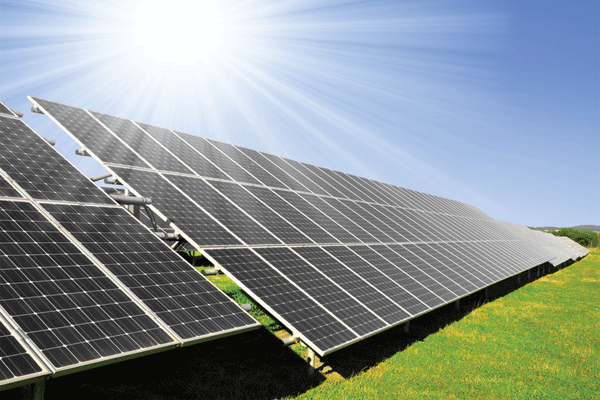
AS the gospel of renewable energy and new energy technologies hots up and dominates the media, institutional research, academic and developmental landscapes, as they penetrate all corners of the globe, we are, however, left with no choice, but to continue anticipating for a ground-breaking rooftop solar boom in Zimbabwe, beginning with a pilot project, of course as an ice-breaker.
Guest Opinion: Peter Makwanya
So much has been said about the indispensability of renewable energy and as the energy messiah it is believed to be. We have talked loudly and written enough, but what remains to be seen is the tangible action, in line with the Sustainable Development Goals (SGDs) 7 (affordable clean energy), 13 (climate action) and 11 (sustainable cities and communities). However, this does not mean to say that other sustainable goals are not important in this regard, mainly because SDGs are strongly interlinked, interrelated, and on paper, they highly influence each other. But in practice, in scope and content, I continue not to beg to differ as l articulated in my article last week article, but to emphatically say, although on paper they possess all the qualities of sustainability, they are not as inclusive as they purport to be. The mantra that, “no one will be left out”, is exclusively designed and suitable for utopian environments, thinking and imagination. Of course, it does not mean that because of their operational gaps, we have to ignore them, we have to give them the attention and respect that they deserve no matter their somewhat inadequacies, life goes on.
Back to the issue of solar energy, the biting costs of importing power from neighbouring countries and the costs of the country’s inability to sustain its local demands, can drive our government and its local supplying authorities to rethink on how best they can transform and manage their energy matrix. As I have alluded to earlier on, if they are not sure about how best they can engage in the solar energy revolution, they can just start with some pilot projects in order to evaluate how sustainable this could be. A pilot solar energy project is good for introspection and can afford chances for modifications, with the future in mind.
What is more worrying is that, those who are being solar compliant in Zimbabwe, do that out of their own volition, not from anyone’s benevolence, including the government or non-governmental organisations, as these people have discovered that waiting to be delivered from energy poverty, is like waiting for the second coming of Jesus Christ.
Apart from the business-minded and entrepreneurial practitioners, the majority of local communities in this country continue to sing energy blues, whether renewable, hydro or thermal generated and are yet to realise the significance of the solar energy revolution. National solar-energy uptake has been moving at a snail’s pace, not because of lack of demand, but due to astronomical and skyrocketing prices of solar products in Zimbabwe. Even influential people and institutions are not leading the way to invest in solar energy.
The country should see how it must tame beyond reach renewable energy costs by building its own solar grids for storage purposes. From the situation on the ground, it may not be easy for the relevant authorities to convince the people that, easily available and cheap coal is dirty and not sustainable. This is due to the fact that the people cannot see the viable energy alternative which has been talked about so much in meetings, at conferences and in the political corridors, for glossing purposes of course. The responsible authorities should demonstrate that, indeed yes, coal is bad, dirty and can damage the environment. The government can only do this by flooding the market with affordable, but sustainable solar energy products for the country’s resilience.
Surely as onlookers and bystanders, we patiently wait for the anticipated energy transition to take place and usher new horizons in the people’s livelihoods. If the solar revolution was adding up, we could be talking of percentages and statistical representations to re-orient our thinking and satisfy our aspirations. As things stand, it’s too early to consider doing away with thermal power generation as we don’t have any meaningful alternatives to back up hydro or thermal power generation. Otherwise as things stand, it is folly to write off other forms of energy completely, before doing a thorough housecleaning.
- Chamisa under fire over US$120K donation
- Mavhunga puts DeMbare into Chibuku quarterfinals
- Pension funds bet on Cabora Bassa oilfields
- Councils defy govt fire tender directive
Keep Reading
Surely people cannot be prevented from ending energy poverty because of the unavailability of the solar grid as the storage system for back up purposes, yet the power of the sun is abundant and unlimited. If the grid is available, we can use electricity during the day without a myriad of energy commandments. It’s not comfortable or sustainable on the part of the local power authorities to continue paying for the costs of hydro and thermal electricity yet they can be self-sufficient in their own right.
The thrust of this energy transition, is not only that renewable energy is cleaner and cheaper in the long run, but it will go a long way in helping to reduce greenhouse gas emissions that cause global warming.
Finally, for a country to move out of the intricate energy importing matrix, it should reconsider seriously the costs of being an energy slave of other countries in the region.
Peter Makwanya is a climate change communicator. He writes in his own capacity and can be contacted on: [email protected]











